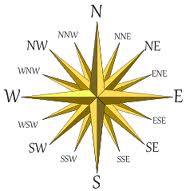When to capitalise, or not
The small matter of the big letter
“I know when to use the big letter.” I bet you’re thinking that, but you would be surprised by how much goes wrong with capitals. Besides the obvious, there are more rules on when, or when not, to use them.
The first word of a sentence
 “Duh, I know that.” But do you know that when the sentence starts after a colon, you do not capitalise? There is, of course, an exception to that rule. When two or more sentences follow the colon, we do capitalise the first word of all sentences following it. Although there are certain style guides that say, “When the sentence is an independent clause, even if it’s only one, you do capitalise its first word.” Which basically means that it’s a style choice you need to make for yourself and stick to it throughout the entire piece you’re writing.
“Duh, I know that.” But do you know that when the sentence starts after a colon, you do not capitalise? There is, of course, an exception to that rule. When two or more sentences follow the colon, we do capitalise the first word of all sentences following it. Although there are certain style guides that say, “When the sentence is an independent clause, even if it’s only one, you do capitalise its first word.” Which basically means that it’s a style choice you need to make for yourself and stick to it throughout the entire piece you’re writing.
Quotes are sentences, and as such, the first word is capitalised, even if the quote is only one word.
“No,” she said.
Likewise when that quote comes at the end of the narrative sentence. She said, “No.”
But not when the quote is interrupted speech. “Hey,” she said, “will you listen to me for once?”
How about when there’s an independent question in a sentence? Then its first word needs a capital. Like in this following example: Some people have trouble with capitals, Did you know that?
This might look funny, or even wrong, but it is a seldom used–even obscure–rule, or style choice, and maybe forgotten by most.
Proper nouns
All proper nouns and words derived from proper nouns should be capitalised. But, where there’s a rule, there’s an exception. When those words are used in a non-unique way, use lowercase. Just think of the Roman Empire (there’s only one of those) but roman numerals (take your pick, there’s so many of them). Or Hershey Kisses as opposed to regular kisses. Remember that a proper noun is still a noun, but a noun is common, while a proper noun refers to a unique entity.
Having trouble distinguishing nouns from proper nouns? Take, for example, cookies (noun), but only when I write Oreos (proper noun) you’ll know I’m talking about chocolate cookies. Or the Eiffel Tower (proper noun) as opposed to the tower (noun) Job built. Which takes us to the next rule.
Names
Easy? Maybe not. Even names have their difficulties. For example, federal or state in the names of official agencies. When they represent an official name, capitalise, but if used in general, don’t.
“The Federal Bureau of Investigation investigates.”
“I will visit three states.”
The names of specific course titles are always capitalised. Meaning Algebra (specific) is capitalised as is English (derived from a proper noun) but not history (could be any kind of history). However, when you refer to algebra in a common way, it should be lowercase. “I love algebra, except when I have an Algebra II exam.”
We capitalise the points of the compass, but only when they refer to a specific region.
But not, “It should be in the southeast section of town.” Because southeast is an adjective here.
Are you dazzled already? Names are easy, aren’t they? Well there’s one more rule, or rather an exception to the rule.
Never, ever capitalise the names of seasons, except when that name is the first word of a sentence, or part of a proper noun, then it is personalised. “The girl, Summer, qualified for the Winter Olympics.”
Kinship names
Those are names and should be capitalised when used alone or when they immediately precede the name of the person.
“It’s true that Mom bakes a better cake than Aunt Bessie.”
But do not capitalise when it’s describing the name or follows the name. Sounds more difficult than it is. “My aunt’s cake is not as nice as Jacob’s mom’s.”
Titles
Whether it’s a publication’s or a person’s, all titles are capitalised. Except … Yes, this rule has its exceptions too, like all.
The complete title of a publication is capitalised, except for the little words such as: a, an, but, and, if, or, nor, etc., or prepositions, no matter what their length. On the subject of prepositions there are two opinions among the stylists, because it’s also said that when a preposition has four or more letters it should be capitalised. In this case, the rule of thumb is: Pick your choice of style and stick to it. Be consistent, and you’ll be in style.
A person’s title is capitalised when it’s used as a direct address or precedes the name, but not when it follows the name, except when it’s on the address or signature line.
“Good afternoon, Doctor.”
“Doctor Frankenstein created a lovely monster.”
“The monster was created by Frankenstein, the doctor.”
“Sincerely yours,
Frankenstein, Doctor.”
And last, but certainly not least, the titles of high-ranking officials. Those types who reside in capitals, but only when the title is used before their names.
“The president (not followed by his name) will address Congress (name of an official body).”
Or:
“It was when President Obama met the senators that Lieutenant Governor Smith dropped the ball.”
And now to end with one that confuses almost everybody.
Lists
 It’s not that difficult. When it’s an outline, each item is capitalised.
It’s not that difficult. When it’s an outline, each item is capitalised.
This is what I need to do, Get gear, Book a trip, Find a Guide, Climb that mountain, Don’t die trying.
But not when a list of items follow a colon.
This is what I need to bring: shoes, rope, carabiners, and a helmet.
I hope this small piece about the big letter helps you to avoid that capital mistake when writing about Capitol Hill.


